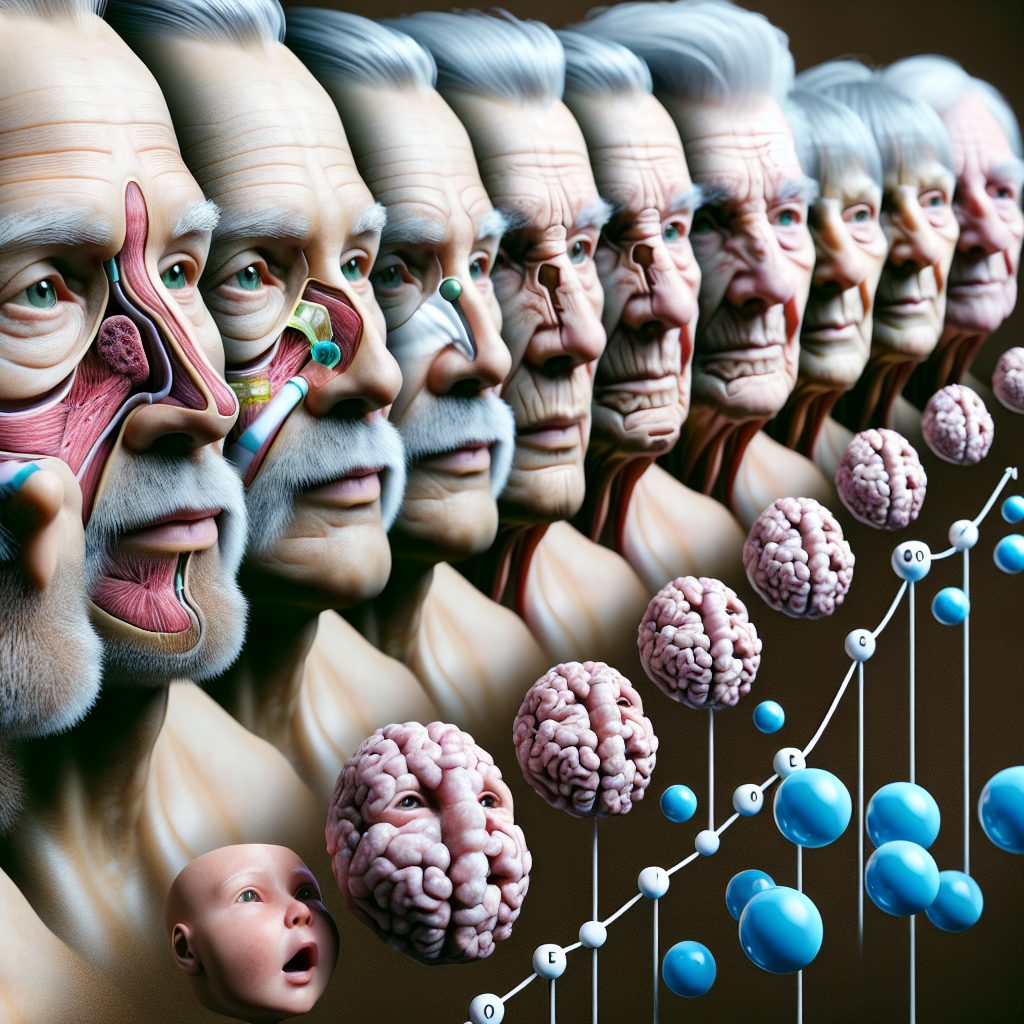
As humans age, their bodies and brains start to deteriorate, and one of the most significant challenges that aging brings is a lower oxygen level in the body. There is a strong correlation between decreased oxygen levels and the aging process beginning from brain and immunity related issues to the body response ability. Poor oxygen levels can lead to less efficient breathing, potential exhaustion, and increased risk of infection. Age-related changes in the general respiratory system including widening of the airways, a decrease in alveolar blood circulation, and a decrease in pulmonary compliance can cause reduced oxygen levels in the blood.
With oxygen levels in the body deteriorating, the question when it comes to aging is how can it be managed and controlled? Overall, oxygen levels drop with age, mostly due to changes in the airways limiting the lungs’ ability to process air. Recent studies have suggested that preserving a healthy lifestyle can help to offset this damage, which includes maintaining a healthy weight, avoiding smoking, and avoiding environmental toxins. Healthier new habits and interventions, such as improved diet, aerobic exercise, and an understanding of the body’s response to oxygen, can help in moderating the decrease of oxygen levels in the body as people get older. Additionally, some newer technologies are being implemented to measure the oxygen levels in the blood, resulting in targeted treatments and therapies.
Key Takeaways
1. Oxygen levels in the body decline with age, which could lead to an increased risk of chronic age-related diseases.
2. Cellular senescence and oxidative stress are two of the main physiological consequences of lower oxygen levels in the body.
3. Emerging research suggests that strategies like caloric restriction, physical activity, and antioxidant supplements could reduce the harmful effects of oxygen decline in the body.
4. Low levels of oxygen can cause anxiety, depression, and other mental health problems due to changes in the brain’s chemistry.
5. Supplementing with nitric oxide and glutathione, as well as monitoring oxygen levels regularly, can help to mitigate the damaging effects of aging.
Can Aging Be Affected by Oxygen Levels?
Oxygen Levels and Aging: How They are Linked
Oxygen is important for most living organisms and it is absolutely essential for humans. The body needs oxygen to survive and it also plays an important role when it comes to the process of aging. Research has shown that oxygen levels can have a direct effect on how we age and how quickly the body deteriorates. In this article, we will explore how oxygen levels can affect the aging process.
The Effects of Low Oxygen Levels on Aging
Low oxygen levels can have a range of effects on the aging process. So far, research has shown that a decrease in oxygen levels can lead to an increased risk of age-related diseases, cognitive decline, muscle weakness, and an increased risk of inflammatory diseases.
A decrease in oxygen levels can also lead to faster cell aging. This is because oxygen plays an important role in keeping cells healthy. When oxygen levels decrease, cells age faster due to oxidative damage and cell death. This in turn can lead to wrinkles, age spots, and other forms of premature aging.
The Effects of High Oxygen Levels on Aging
Surprisingly, research has also shown that high oxygen levels can accelerate the aging process as well. This is because high levels of oxygen can cause oxidative damage to cells, leading to cell death and accelerated aging.
High levels of oxygen can also increase the risk of certain age-related diseases. This is because high levels of oxygen can increase inflammation, which can lead to increased risk of chronic inflammations such as diabetes and heart disease.
How to Maintain Healthy Oxygen Levels for Healthy Aging
In order to maintain healthy oxygen levels in the body, it is important to make sure that you are getting a sufficient amount of oxygen. This can be done by making sure that you are getting enough exercise and breathing deeply. Eating foods that are rich in antioxidants can also help to keep your oxygen levels in check.
It is also important to avoid activities that can lead to a decrease in oxygen levels. Avoiding smoking, drinking alcohol, and being in polluted environments can all help to reduce the risk of developing age-related diseases.
Takeaways: Tips for Maintaining Optimal Oxygen Levels for Healthy Aging
1. Make sure that you are getting enough exercise and breathing deeply to ensure that you are getting enough oxygen.
2. Eat foods that are rich in antioxidants to help maintain healthy oxygen levels.
3. Avoid smoking, drinking alcohol, and being in polluted environments to avoid activities that can lead to lower oxygen levels.
4. Ensure that you are getting enough rest so that your body can recover and maintain a healthy level of oxygen.
5. Talk to your doctor about any issues related to oxygen levels and aging.
What role does oxygen play in aging?
Oxygen is essential for cellular respiration, which provides energy and is essential for life. Without oxygen, cells cannot function properly. Research suggests that low oxygen levels induce a low-level, chronic cellular stress state which leads to accelerated aging. As oxygen levels drop, the cells of the body age faster which leads to a shortened lifespan.
How can I maximize oxygen absorption?
The best way to maximize oxygen absorption is to engage in physical activity such as walking, running or swimming. Additionally, breathing techniques can be used to regulate oxygen levels, and oxygen supplements can be used when necessary. Improving your diet can also result in improved oxygen absorption.
What diseases are linked to aging?
Certain diseases are more common in people as they age, including heart disease, stroke, diabetes, and cancer. As the body ages, cells and organs can become less efficient and cause diseases to appear in the body. Many age-related diseases can be managed through lifestyle modifications and specialized treatments.
Does oxygen therapy affect the aging process?
Oxygen therapy can be used to increase oxygen levels in the body and is thought to help slow down the aging process. It may also be useful in treating chronic diseases and other medical conditions associated with aging. However, more research is needed to understand the full extent of the effects of oxygen therapy on aging.
What is the difference between aging and oxidative stress?
Aging is the natural process by which the body and its cells age and decline. Oxidative stress is a process caused by an imbalance between the production of increasingly harmful free radicals and the body’s natural ability to detoxify them. Oxidative stress can accelerate the aging process by damaging cells and leading to disease.
What lifestyle changes can be made to slow down aging?
Making healthy lifestyle changes can potentially slow down the aging process. Eating a balanced diet, exercising regularly, and getting enough rest can all help slow down the aging process. It is also important to avoid smoking and drinking alcohol in excess as these can speed up the aging process.
Can exercise slow down the aging process?
Yes, regular exercise can help slow down the aging process. Exercise increases circulation and can help maintain healthy oxygen levels in the body. Additionally, regular physical activity strengthens bones, joints, and muscles which can help slow down the effects of aging.
Does environmental pollution accelerate the aging process?
Yes, environmental pollution can accelerate the aging process. Pollutants such as smoke and ozone damage cells and contribute to oxidative stress, which can speed up the aging process. Additionally, air pollution has been linked to an increased risk of developing age-related diseases such as cancer.
What is telomere shortening?
Telomeres are sections of DNA at the ends of chromosomes which become shorter as a person ages. As telomeres shorten, cells can no longer divide and regenerate, leading to the aging process. Studies suggest that managing oxidative stress and increasing oxygen levels may help slow down telomere shortening.
Are some people more prone to age-related diseases than others?
Yes, certain factors can make people more prone to age-related diseases. Poor diet, lack of exercise, smoking, and excessive alcohol consumption can all increase the risk of age-related diseases. Additionally, genetics and family history can play a role in a person’s susceptibility to age-related diseases.
Final Thought
Oxygen is essential for life and the proper functioning of the cells in our bodies. As oxygen levels drop, the body’s cells age faster, leading to a shortened lifespan. Although aging is a natural process, healthy lifestyle choices can help slow down the aging process. Additionally, oxygen therapy and supplements may be beneficial in managing chronic diseases associated with the aging process.
Research is ongoing in the field of oxygen levels and aging, and it is likely that new treatments and therapies will be developed in the future. In the meantime, healthy lifestyle choices can help individuals manage the effects of aging and potentially slow down the aging process.



